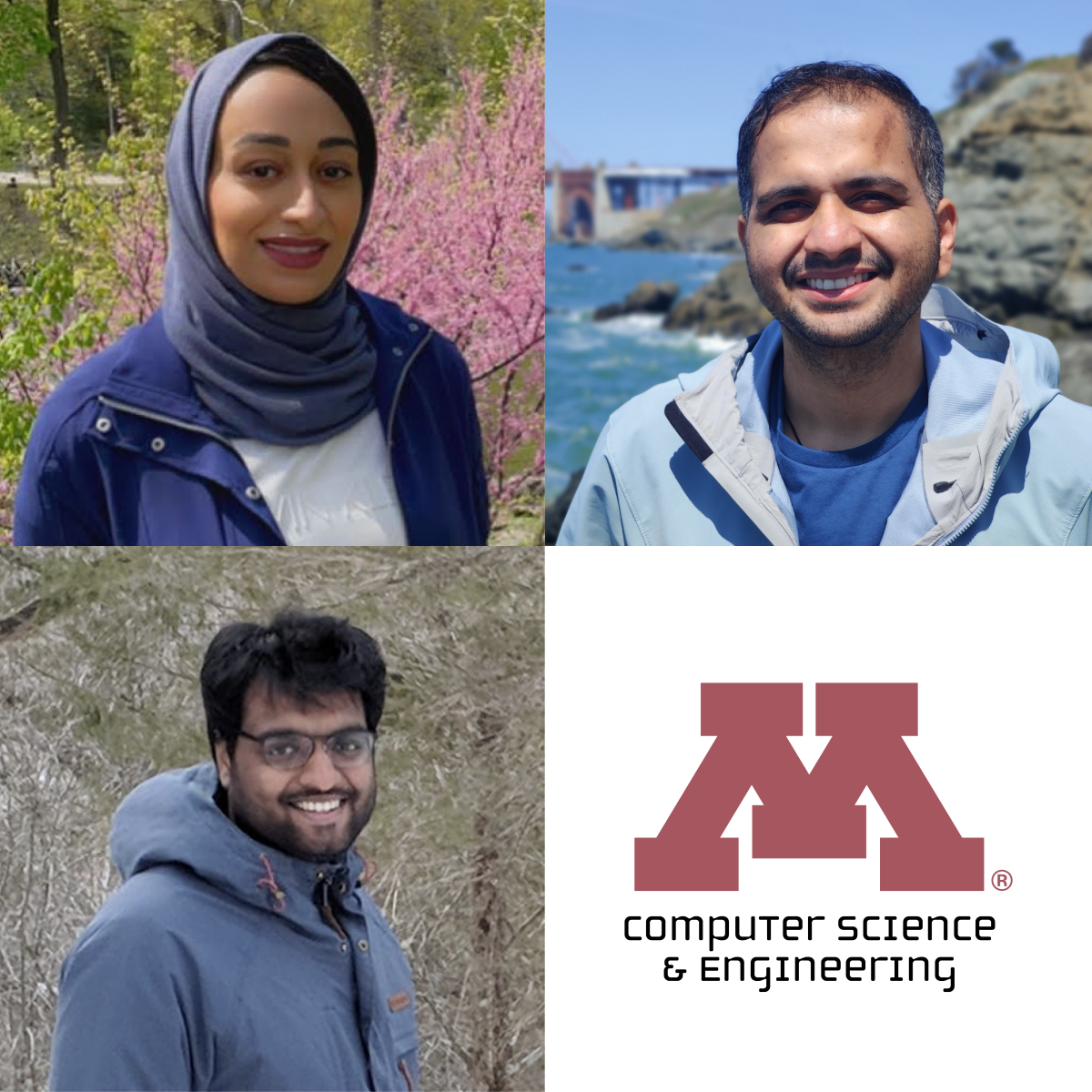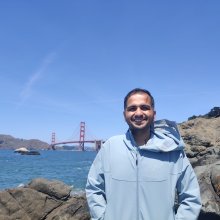2022-2023 Doctoral Dissertation Fellowship (DDF) award winners

Three Ph.D. students working with CS&E professors have been named Doctoral Dissertation Fellows for the 2022-2023 school year. The Doctoral Dissertation Fellowship is a highly competitive fellowship that gives the University’s most accomplished Ph.D. candidates an opportunity to devote full-time effort to an outstanding research project by providing time to finalize and write a dissertation during the fellowship year. The award includes a stipend of $25,000, tuition for up to 14 thesis credits each semester, and subsidized health insurance through the Graduate Assistant Health Plan.
CS&E congratulates the following students on this outstanding accomplishment:
- Sahar Aseeri (Advisor: Victoria Interrante and Evan Suma Rosenberg)
- Arun Sharma (Advisor: Shashi Shekhar)
- Kshitij Tayal (Advisor: Vipin Kumar)
Sahar Aseeri

Sahar Asseeri has made a remarkable set of diverse, independent, original contributions to the fields of virtual and augmented reality and human-computer interaction, as evidenced by her multiple publications. Her total number of publications is better than average for a Ph.D. student in her specialty area, but what really stands out is the quality and breadth of her contributions. Her papers have appeared in the very top venues in her field, and her contributions span both core technical achievements (i.e. advances in computer systems implementations) and important theoretical contributions, achieved via careful human subjects experimentation. In addition to this, her research has a clear interdisciplinary focus, and the excellence of her interdisciplinary work reflects her deep attention to closely collaborating with domain experts in related fields outside of computer science. This broad skill set is unusual among computer science students in general and among students in her research area, and it puts Sahar in a very strong position among her peers in her field.
Arun Sharma

Arun’s thesis investigates emerging spatial big data and their potential to solve problems that could not be solved before. For example, he has investigated computational structure of identifying possible rendezvous despite gaps in trajectory data. This problem is important due to societal use cases such as monitoring of open seas and oceans to discourage illegal fishing and cargo exchange. It leverages space-time modeling of trajectory gaps to reduce the potential area for further analysis by review of satellite imagery. Traditional space-time prisms provide a loose upper bound for the area of possible rendezvous and Arun is exploring ways to tighten the upper bound to reduce the human effort to review satellite imagery.
Kshitij Tayal

Kshitij's research focuses on advancing data-driven approaches (aka machine learning) for scientific problems. ML systems often fail to generalize when the training data is noisy/incomplete, crashing in spectacular ways when tested outside the purview of training examples. Kshitij key contribution is in building novel machine learning methods that are robust to noise, missing values, and are able to learn from highly variable data. Kshitij is exploring innovative machine learning (ML) methods to model the dynamics of water temperature in water bodies such as lakes and rivers. Data for training these ML models comes from earth-orbiting satellites and in situ sensors. Along with other computational challenges, such data contains both space and time components and are plagued with noise/uncertainty due to frequent instrument malfunctions. In his research, Kshitij is addressing these issues by developing novel techniques that accurately capture variability in the data, and are robust to uncertainty and noise.